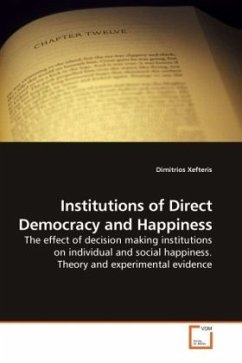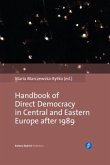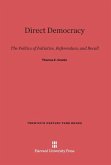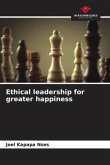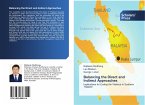This monograph studies the implications that institutions of direct democracy have on the happiness of a society, in a framework where the authority is interested both in implementing its ideal policy and in its re-election. It is shown that, in cases where authorities have full information about the social distribution of opinions, political activity drives a positive measure of authority types to choose the socially preferred policy. It is, also, shown that if the authority possesses a relatively low level of information about the distribution of opinions of the society, referenda in a great variety of cases offer a high level of happiness to the society and, thus, a high re-election probability to the authority. When the authority possesses full information about the distribution of opinions of the society, and the society is unaware of this fact, referenda also have a positive effect on social happiness and sequentially to the re-election probability of the authority. The optimal actions of the authority are described for the different combinations of the type of the authority and the specific distribution of opinions of the society.

